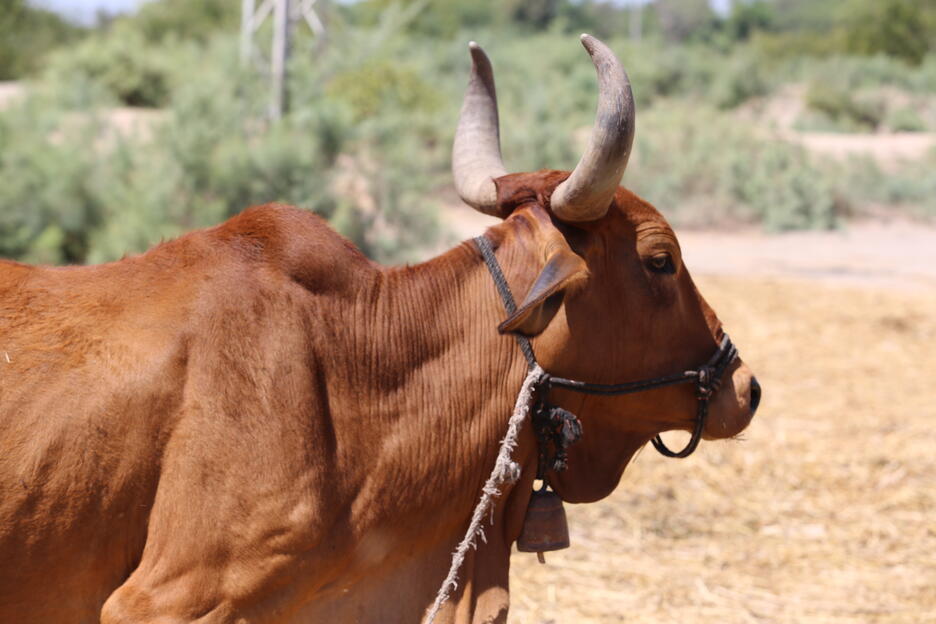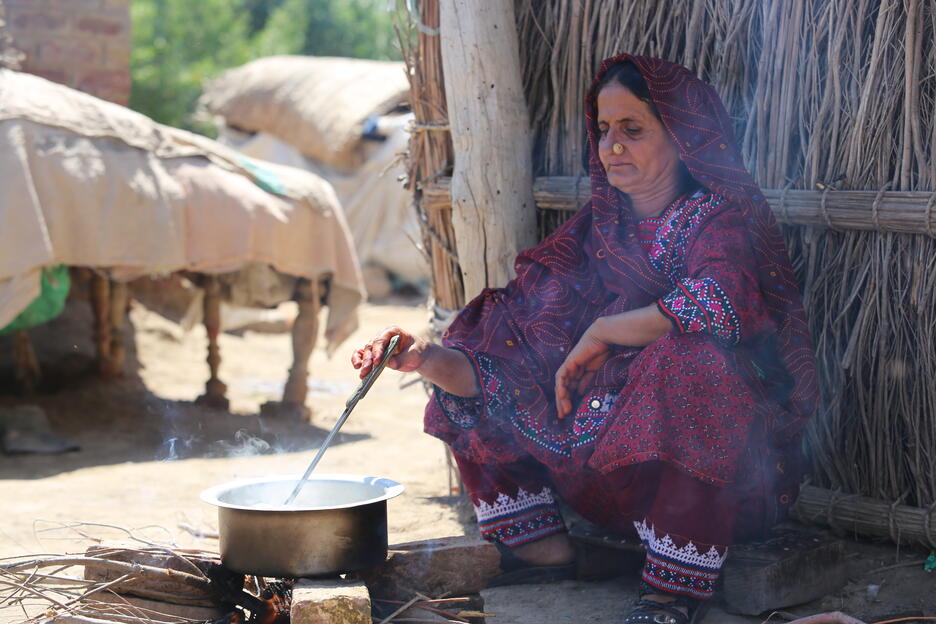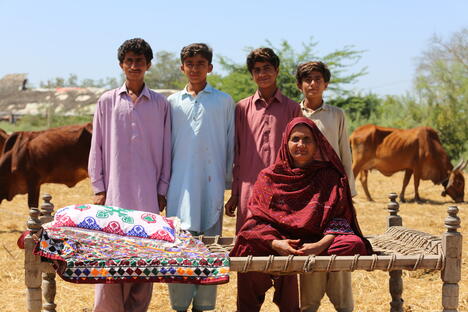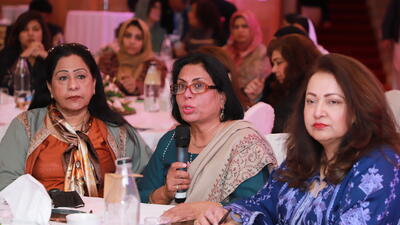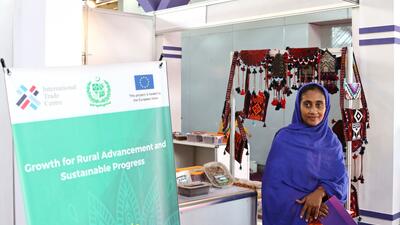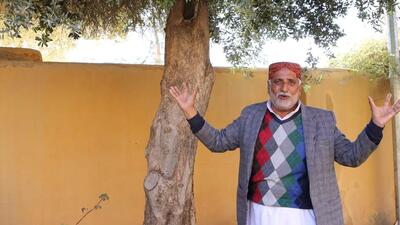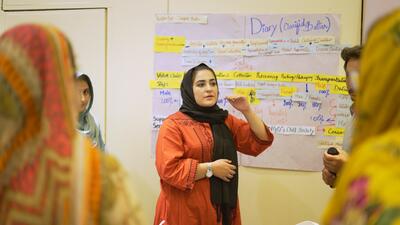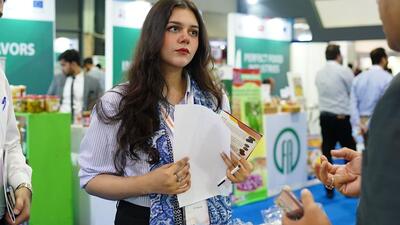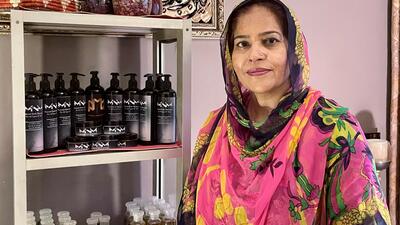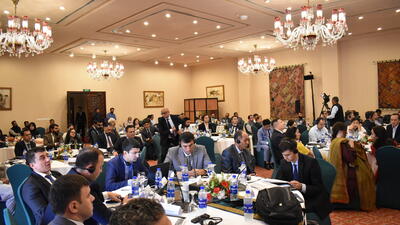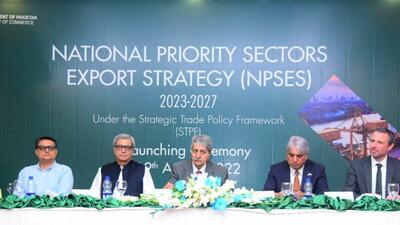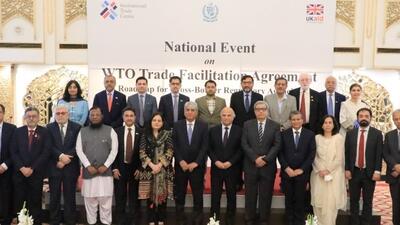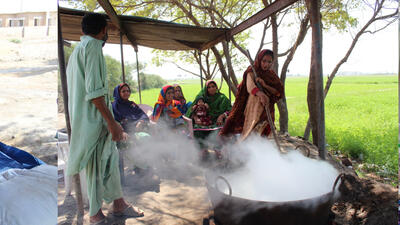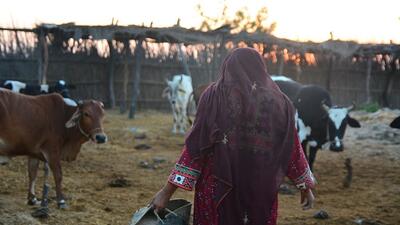
Being climate-smart in Pakistan
Rural women in Pakistan are being trained to overcome the impact of climate change and grow their farming business sustainably
The moments that Buwa Lashari spends with favourite cow, Mathar, make her day. From dawn to dusk, as well as juggling household chores and looking after five children, Buwa gives her best to feed and clean Mathar and her other farm animals.
Like many other women of Izzat Lashari village, Buwa is dedicated to her children and livestock. This is not unique to Buwa. Many rural women living in the outlying parts of Sindh province in Pakistan identify as farm girls and are the primary caretakers of livestock.
But climate change stands in Buwa’s way.
Proud of rearing the herds and taking care of their farmlands, Buwa and her peers are vulnerable to the impacts of climate change. Strict social barriers, spread of misinformation, and a lack of access to critical technologies hinder their economic and social advancement.
Traditional farming methods can no longer cope with issues such as water scarcity due to the rapidly changing climate patterns. The recent onset of COVID-19 added to the predicament of farming communities that rely on livestock and horticulture for the sustenance of their families.
"It rains when it’s not supposed to and gets extremely hot during odd seasons."
The transportation halt meant a feed shortage for their livestock, as well as blockages to selling cow’s milk to their buyers in nearby cities. Buwa’s six cows started getting weak, and finances tight.
"My cattle have not been milking a lot, they did not have enough feed to keep them going. This significantly decreased their produce."
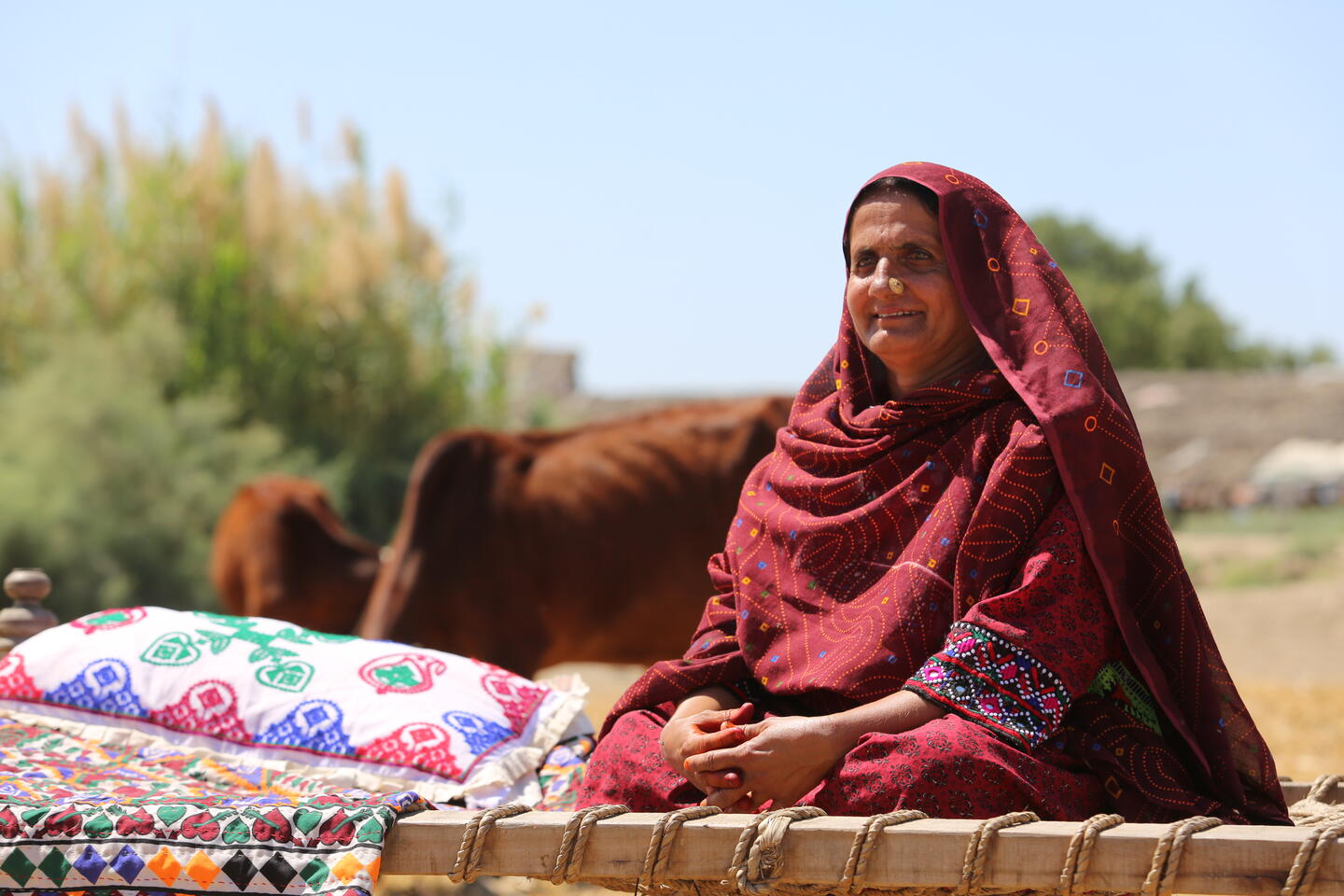
Video
The situation took a turn for the better when Buwa joined a training on livestock management and value-added products. She also received high quality feed for livestock, and climate-resilient chilli seeds.
Moreover, the trainees learnt how to prepare and market milk products such as khoya, a popular ingredient for preparing sweetmeats. Along with 20 other women, Buwa is fast turning into an internet savvy trader. Using the smartphone that Buwa received as part of the training, many buyers are just a call away.
With better feed and care, the livestock is showing signs of recovery, which is translating into higher income for Buwa and her family. Her cow Mather is also doing well.
As an additional source of income, Buwa and her fellows are growing chillies now, making chilli paste and powder for better prices.
"My cow now gives up to 8 kilos of milk per day, as compared to three and a half previously. The animals that sold for $120 can now fetch up to $200."
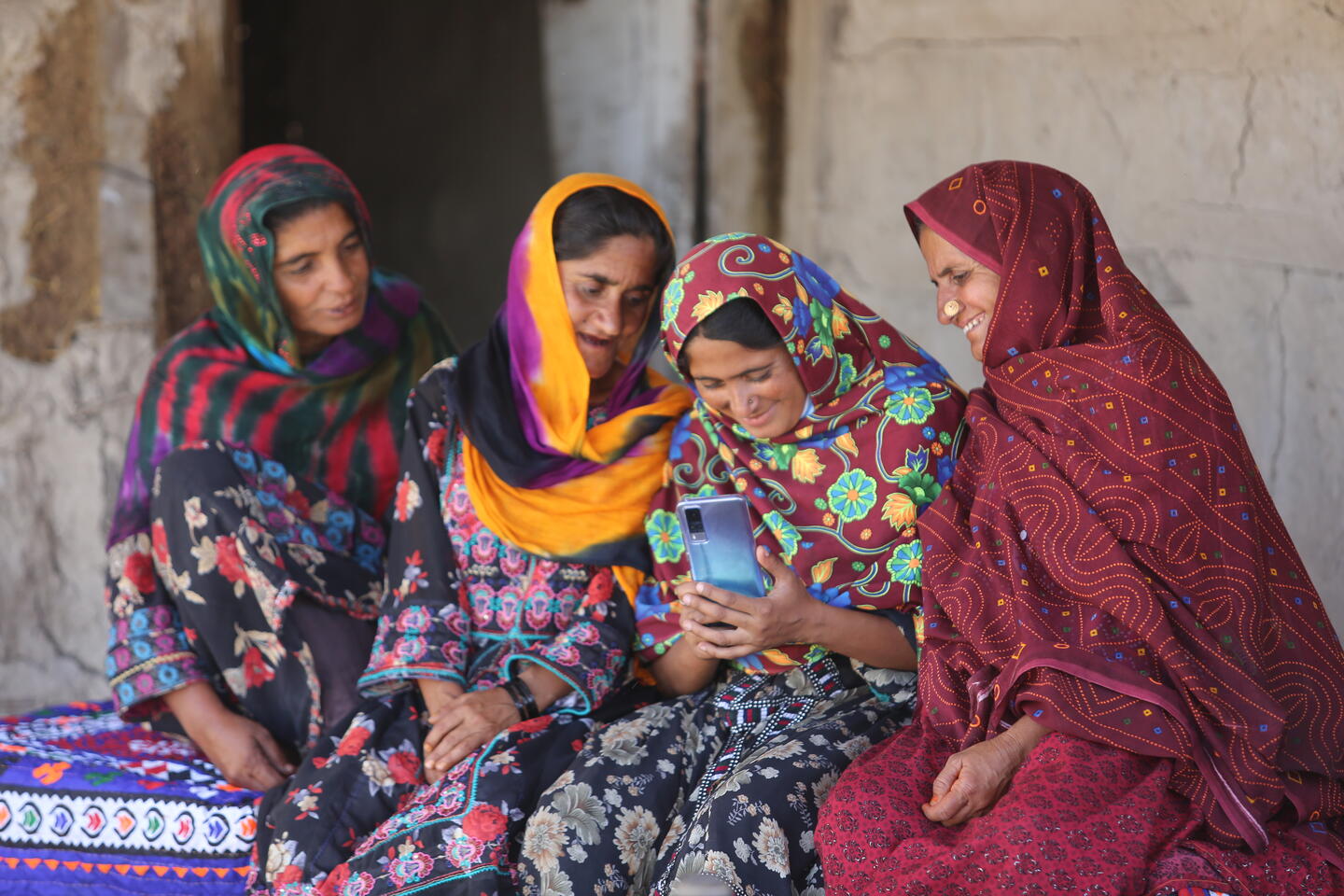
Looking towards a better future
Buwa’s heartfelt hope is her eldest daughter. She is as enthusiastic about completing her education as she is for farming and livestock. She wants to help her mother grow their sustainable family business online.

150 women farmers including Buwa, from Thatta and Khairpur districts of Pakistan’s Sindh province received trainings for enhanced climate-smart agriculture practices. These trainings are part of the COVID-19 emergency work plan of the International Trade Centre’s Growth for Rural Advancement and Sustainable Progress (GRASP) project, funded by the European Union.





